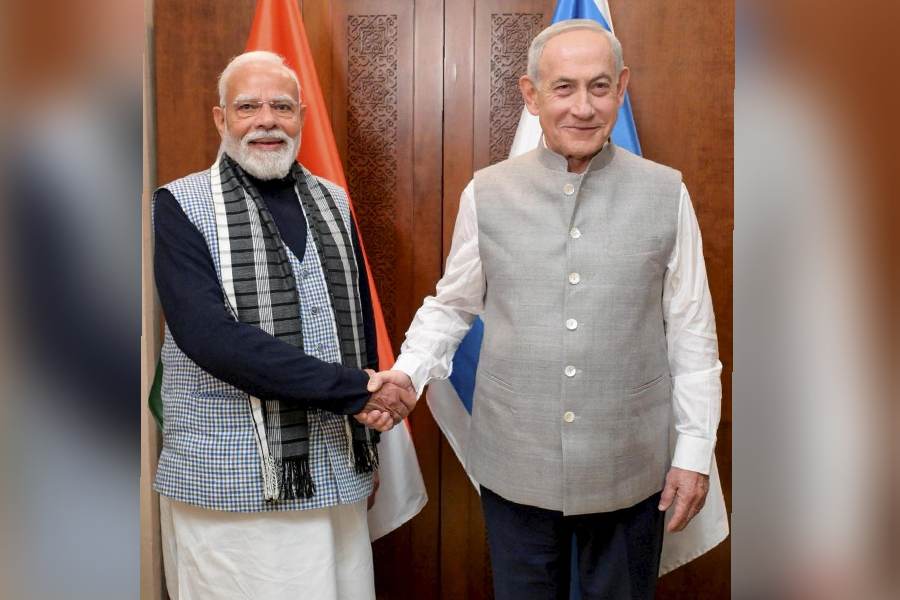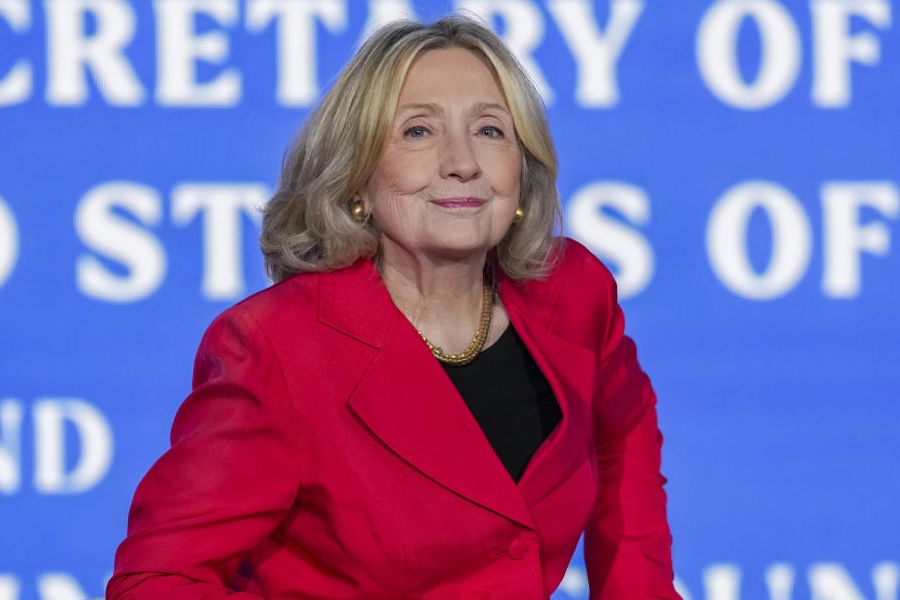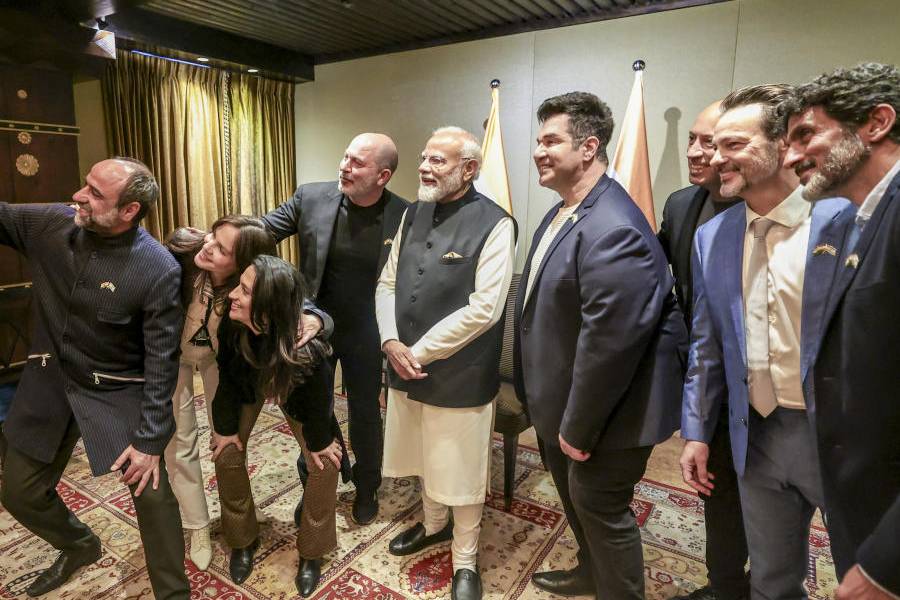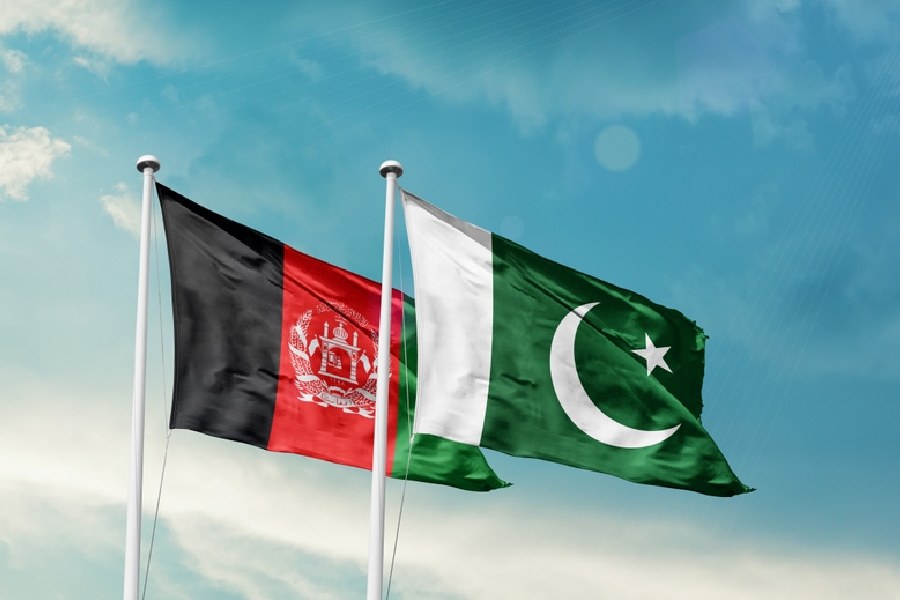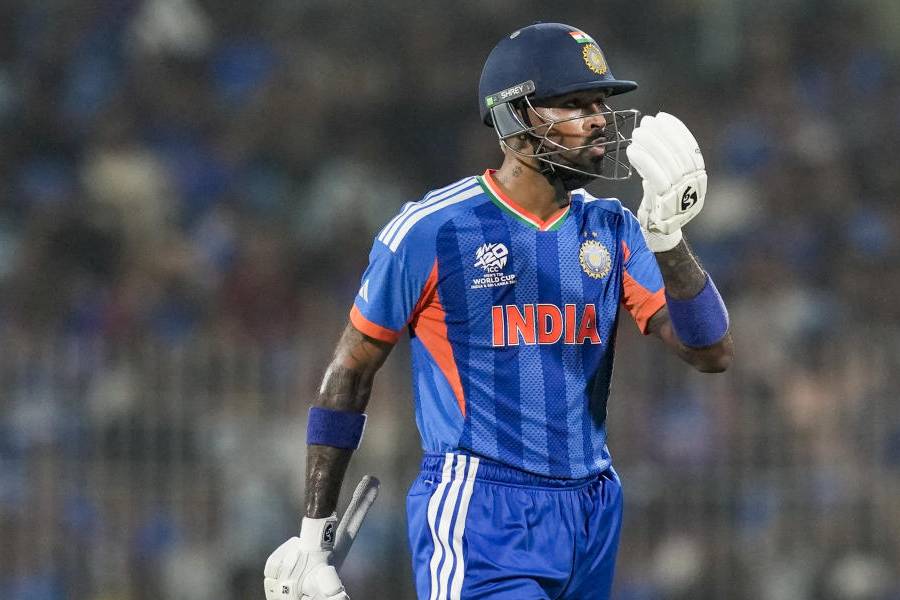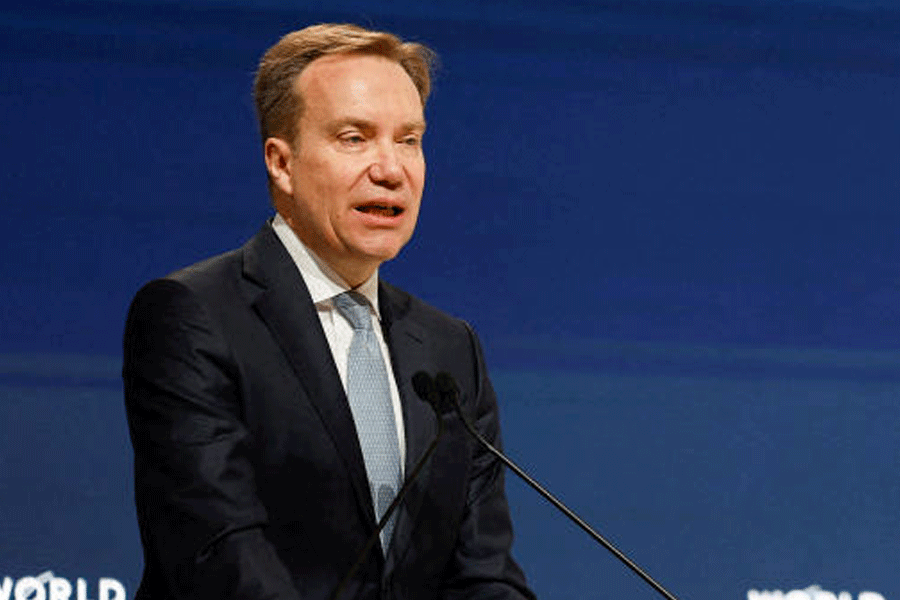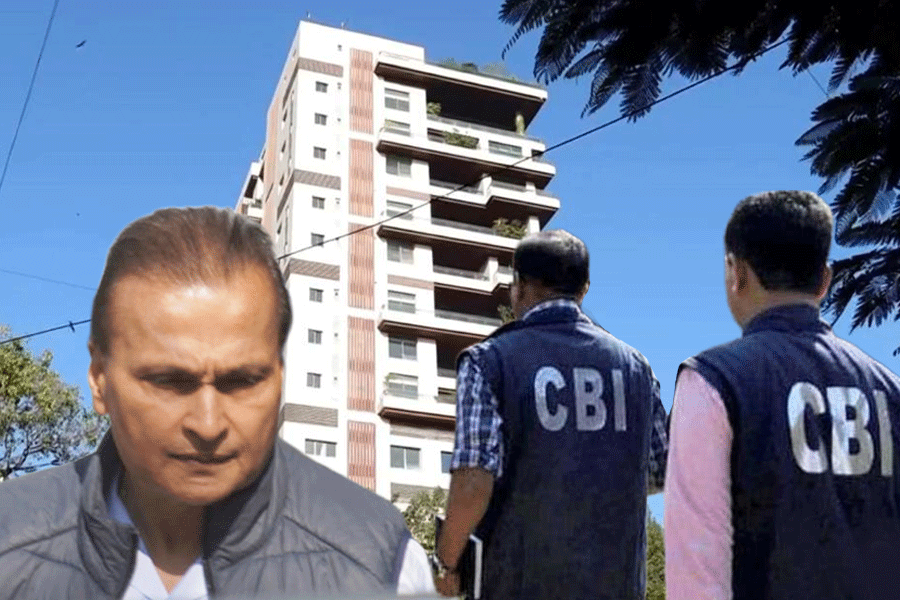 |
Relevance is the path to reinvention. Or, as Srikantadatta Narasimharaja Wadiyar would say, adapt or die. And he should know — as an ex-prince who became a parliamentarian, a hotelier who was a former president of the Karnataka Cricket Association, and an art collector who is now a fashion designer.
The house of Wadiyar recently had models stride down a catwalk at the Bangalore Palace, displaying a luxury chiffon and silk signature line by Wadiyar himself. A grand gesture earlier this year saw Wadiyar and his sisters part with palace land, worth several hundred crores of rupees, for infrastructure projects in the city. There was just one rider — civic authorities had to comply with their choice in the type of substitute trees and their locations.
Wadiyar, who is still the titular head of erstwhile royalty during Dussehra festivities in Mysore, was raised to rule but the little matter of a new republic overtook events. His father’s death in 1974 left him heir to a palace but not a kingdom.
“But today I have almost 750 people working with me in my hotels and estates. I travel first class or club class, stay in the poshest hotels and live like a maharaja without technically or legally being one,” he says.
It’s a mid-April morning, and the sun beams benignly on the sprawling grounds of Bangalore Palace. Visitors’ modern day chariots are shown to a vast parking bay offside, while several resplendent old royal tongas line up outside the Tudor-style edifice, which is now part museum and part residence of the Wadiyars. The 57-year-old art collector is in his study, seated on an antique plumped chair with a little footstool, facing two slim chairs for visitors.
He is dressed casually even by informal standards: in pyjamas and a jubba (traditional cotton vest), with his hair tied back in a ponytail. He has lost several inches because of a recent illness, and his handshake is more a palm extended than gripped.
“It is not that I am a fashion designer, although I personally work out the costumes and dresses,” he says of his collection, which is intended, along with jewellery and branded memorabilia, for sale at outlets at his hotels.
Brightness seeps through the skylight, where air conditioners have been placed. The study is a work in progress, with heirlooms, paintings, books and chandeliers that coalesce into an atmosphere replete with history and ongoing change.
Wadiyar points to an early Jamini Roy, his latest acquisition. “I picked up the two frolicking deer at an auction in London for £2,000,” he says. “I browse through catalogues and e-catalogues. What I find interesting I enlarge, and if I like the picture, I pick it up,” says Wadiyar, whose collection includes miniature water colours from late 18th century India.
As a collector and investor, Wadiyar keeps his shopping list broad-based. “I am interested in everything,” he states. Apart from paintings, there are vases — European cutglass, mirrors and pure silver. And then he has books, he says, gesturing towards a glass cupboard stacked with hardcovers.
Not much in the room is insured. “There is no insurance for art in India,” he says. He brought in private security some years ago after thieves made off with 1000 PVC linings newly put in a sewer just 50 metres from his bedroom.
Ghosts of the past linger but naturally in a palace where history is within living memory. Wadiyar’s father, Jayachamaraja Wadiyar, was the last ruling king of the then princely state of Mysore. The former king was the governor of Mysore state at the time of his death in 1974. “Because of the lineage, a certain amount of decorum and dignity was essential for a person like me. But basically I meet with everyone for that is the way I was taught to be,” he says.
As a young child he and his sisters were schooled at the palace and sent to etiquette classes, where Sister Immaculate Heart would not hesitate to rap their palms with a cane if they were disobedient. Social graces were essential when your visitors were the King of Afghanistan, the Queen of England or the Shah of Iran.
Yet the family never expected anyone to address them by their title. “It was drilled into our heads that our name had a certain amount of importance, and not our title,” recalls Wadiyar. When the siblings went to private school, the teachers were instructed to call them by their name.
The children saw “plenty of movies” at the various royal properties. English films were shown on a home projector, with reel cans being fetched from theatres in Trichy. Later, Kannada or Hindi films were viewed from the “box” in theatres, and if Wadiyar is to be believed, the balcony or gallery, if the former was not available.
Jayachamaraja knew better than most that the environment in the Sixties and Seventies tilted towards socialism — “a sort of left-of-centre attitude in the government”. For many people, royalty was seen as an anachronism. Not surprisingly, by the time Wadiyar was doing his postgraduation, he was “almost a leftist-communist” and an atheist. “I never believed in god, excepting that I was forced by my mother to follow certain traditions and customs.”
For Wadiyar, it was also a turbulent run-up to his father’s death. The privy purse was abolished in 1971. “Totally, my father got Rs 26 lakh. I would have got Rs 10 lakh today. That’s nothing. I make much more in one of my hotels today.”
The former ruling sovereign of Mysore State at one point found himself with most of his staff retrenched and much of his private land and wealth gone. “My grandfather and my great uncle, Krishnaraja IV, had a lot of businesses. As maharajas, they got only Rs 30 lakh from the civil list (paid for being heads of states to maintain their retinue) but their private businesses had made them the richest men in the world in the 1940s.”
The family, he says, ran everything — “the only thing they did not run was possibly information technology”. Some of it eventually became state property but income from businesses like coffee, tea, cardamom, cocoa and rubber went to the personal coffers. His father, however, did not have a business head for estates.
Wadiyar lists with regret the loss of properties such as two mansions next to the Taj Hotel in Mumbai, Madras House and several houses overseas, followed by nearly 7,00,000 acres of coffee and tea estates which advisers said would attract wealth tax.
“A host of secretaries and advisors all wanted to rip my father off. He was driven to a situation where he did not even have a personal attendant or a driver,” he reminisces grimly. His mother was equally ill-served.
She “injudiciously” handed over the management of the Mysore Palace to the Karnataka government and the matter is now in court.
The son dispensed with personal staff, brought in expert auditors and chartered accountants and slowly sorted out matters. “I promised myself to work out things without hangers-on. And I have been able to stick to that.”
An issue that continues to rankle is the series of litigation he has been through to be able to sell the properties he inherited. “My sisters got exemption to sell their land but the government of Karnataka never gave me one single exemption to sell one single property of mine,” Wadiyar gripes.
It took him decades to sell an estate and pay his father’s wealth tax. Some matters are pending before the apex court but Wadiyar says he has sorted out the rest. “I managed to survive and pull on,” he says.
Wadiyar may live like a king, but clearly doesn’t think like one — not even when he puts on court regalia for the annual Dussehra ceremony at the palace. “I am always counting on the earliest possible chance to get out of it for it is almost 20 kilos heavy.”
There is no vestige of any family intrigue either. Married to a distant cousin, Pramoda Devi, they have no children. “As far as my siblings are concerned, we are one family. We have no squabbles. I have divided the property between my sisters and that’s the end of the matter.”
An MP several times over, Wadiyar says he’s been with the Congress since 1984 — barring “a very small stint with the BJP”. When the Congress split in 1980, his mother wanted him to contest from the Devraj Urs faction. “I told her I’d rather go with Indira Congress, and that was why I had some problems with my mother. So I tacitly withdrew from the possibility of contesting.” He later won as MP in 1984, going on to win and lose subsequently. This time around, the invitation to contest came as an afterthought, and too late: Wadiyar was in hospital.
Wadiyar is clearly disenchanted with the state party unit but swears “100 per cent” that he has “personal faith and sympathy” with the Congress.
Retirement from politics is not an option and he veers between party allegiance and rebellion. “There is a vacuum in the state. My friends have been telling me, why don’t you float a regional party. I am against the idea but then the option is always there for me.”
In the meantime, he says, he is on “a sort of sabbatical”. Probably revisiting his favourite thinker, Machiavelli, who said “morality and politics don’t go hand in hand. You don’t have to be immoral but you may have to be amoral. That is very practical.”
Wadiyar looks around the room and beyond the now-open door into the Mediterranean-style quad, and reflects on the one childhood lesson that stays. “You have to live with the times. If not, you become a living anachronism,” he says, before exiting for a turf club meeting.


